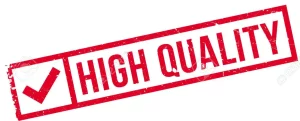- Premium Academic Help From Professionals
- +1 757 528 8682
- support@standardwriter.com
Article Critique Justice Related Assignment
Article Critique Justice Related Assignment
|
Order Number |
636738393092 |
|
Type of Project |
ESSAY |
|
Writer Level |
PHD VERIFIED |
|
Format |
APA |
|
Academic Sources |
10 |
|
Page Count |
3-12 PAGES |
Instructions/Descriptions
Article Critique Justice Related Assignment
Overview
In the Article Critique Assignments, you will systematically and objectively critique criminal justice-related research articles to understand published research. You will critique the strengths and weaknesses of peer-reviewed journal articles and carefully analyze arguments and points in the article.
You will develop the technical writing skill of critiquing while furthering critical thinking application and knowledge of the topics investigated. You will incorporate and apply a Christian worldview perspective to each topic and Article Critique Assignment.
Instructions
- 4-7 pages excluding the title page, abstract, and reference pages.
- Current APA format.
- Minimum of two (2) peer-reviewed journal articles from Liberty University library.
- Acceptable sources (peer-reviewed articles published within the last 5-10 years only).
- Include a critique of least two (2) strengths and two (2) weaknesses from each article.
- Include a Christian and Biblical Worldview perspective.
This Article Critique Assignment requires that you follow a template. Please review and follow the template carefully. Include a running header, title page, abstract (between 120-250 words), proper APA headings/subheadings, and a reference page. Please note that you are asked not to change or omit any of the bold headings that are already in the template. You are only asked to insert your written content into the appropriate sections of the template.
Locate 2 peer-reviewed articles no older than 5 years that discuss 2 historical Supreme Court cases and review the presentation titled: “Courts (Part 1)” found in the Module/Week 4 Reading & Study folder. This historical case-law can be related to: search and seizure, stop and frisk, searches for evidence, or police interrogation and confessions. Provide an in-depth discussion of the findings of each article. With respect to the specific case law you have analyzed, defend constitutional democracy and the issues raised in case-law from a Christian worldview
Courts (Part 1)” found in the Module/Week 4 Reading & Study folder.
he American criminal justice system is a dual court system this means that we have court structures at both the state and federal levels there are courts of general jurisdiction and courts of limited jurisdiction courts of general jurisdiction here all types of cases where as courts of limit of jurisdiction only hear specific types of cases generally criminal trials fall under the courts of general jurisdiction
there are different organizational structures for trial courts and appellate courts each state has a different way of structuring their individual state court systems typically at the state level there are trial and appellate courts each state has a state supreme court federal courts have jurisdiction to only hear federal related cases which involve violation of federal laws the government itself must be prosecuting the case or is somehow party to the lawsuit the only criminal case is heard by a federal court would be in the instance in which defendant violated federal law
or in instances where defendants believe the state has actually violated federal law the majority of prosecutions are not prosecuted in federal courts but rather in state courts federal courts have both trial and appellate courts and the court of last resort known as the United States Supreme Court there are a number of specialty courts under the federal court system for example members in the United States armed forces
who have been accused of violating criminal laws for individuals in the military are tried in courts martial drug courts have been responsible for dealing with nonviolent offenders accused of drug crimes members of American Indian tribes can be tried by tribal courts for crimes that have been committed on tribal land the United States immigration court concerns themselves with matters of workman’s compensation and employment benefits team courts are another specialized court
that deal with 1st time nonviolent youth offenders the objective of these teen courts is to deter youthful offender’s teen peers and serve as a prosecution defense attorney and even the jury there are various types of. Which is known as magistrates justice a police commissioners and referees magistrates and justices of the peace of quickly handle minor legal matters court commissioners who are also known as referees generally preside over earlier stages of core processes and are typically found
in juvenile and family courts and they also hear many misdemeanors and felony cases and appeals as well the United States Supreme Court judges are known as justices there are various types of prosecutors special prosecutors are allocated the authority to investigate and bring upon charges and high profile political scandals most states have attorney generals
they are often elected into office the majority of all criminal prosecutions are prosecuted through the district attorney’s offices and they prosecute criminals at the local level public defenders represent indigent individuals who cannot afford an attorney there are however individual lawyers in private practice that can take on indigent clients for a fee also the contract method allows law firms and nonprofit agencies to accept engine it cases on a fee schedule juries have been around for thousands
of years and are a compilation of civilians that will determine the guilt or innocence of a suspect witnesses will be summoned to provide information about the direct knowledge concerning a situation expert witnesses will provide scientific technical and specialized knowledge they provide opinions to help trier of fact decide a case courtroom work group is made up of many participants judges are responsible for deciding on several matters including whether probable cause exists
to believe that a suspect has committed a crime whether or not to release the suspects from custody during a trial and to decide on that as of law including sentencing prosecutors have the responsibility of prosecuting cases, they also bring about charges against defendant’s prosecutors’ offices also conduct investigations and make various recommendations with respect to.
Sale and plea bargaining as well as make sentencing recommendations like judges prosecutors have considerable amounts of discretion they exercise their discretion by determining whether to pursue a case file charges or when deciding whether to resent a plea bargain to the defendant defense attorneys are responsible for arguing the case on behalf of the defendant they also conduct a pretrial investigations may be present during law
enforcement questioning and they consult and bargain with the prosecutor and the judge over bail amounts and sentencing public defenders are assigned by the courts in instances where defendants cannot afford their own attorney assigned counsel represents individual lawyers and private firms who also take on indigent clients some court jurisdictions utilize a contract method in which law firms and nonprofit agencies accept engine cases on a fee basis the majority of felony cases are represented by public defenders
However privately paid defense attorneys are available to those who can’t afford their services juries are represented as us citizens who do not have formal legal training but are summoned to participate in investigating crimes and determining whether or not there is sufficient evidence to file charges and prosecute specific suspect grand juries are juries who make those determinations petit juries are citizens who ultimately decide guilt or innocence of those charged with crimes witnesses
are an important courtroom workgroup a lay we witness is someone who has heard or has seen something firsthand that is related to the crime an expert witness can provide their specialized knowledge to help decide upon the case and therefore can offer an opinion about an issue in Deuteronomy 116 through 17 scripture reads and I charged your judges at the time saying here are the causes between your brother and judge righteously between every man and his brother and the stranger that is with him each shall not respect persons in judgment but ye shall hear.
The small as well as the great each shall not be afraid of the face of man for judgement is God’s and the cause that is too hard for you bring it on to me and I will hear it no hear the interest is on impartiality there was also an infamous this on the need for delegation Moses had been trying to hear and review every case and self but his father in law Jethro advised him that delegation was important in Exodus 1813 through 27 our court system needs that delegation as well to really ensure that the judicial system
is not caught up and people have to wait for justice of course in an overly legit is society where people look for legal coverage at the expense of moral integrity the court systems will always be overburdened this is a reminder that the legal system can never remove evil it can only restrain it as people reject self-government based upon Biblical wisdom and justice, we will see more laws less freedom and a judicial system overwhelmed.
Article Critique Justice Related Assignment
| RUBRIC | |||
| Excellent Quality
95-100%
|
Introduction
45-41 points The context and relevance of the issue, as well as a clear description of the study aim, are presented. The history of searches is discussed. |
Literature Support
91-84 points The context and relevance of the issue, as well as a clear description of the study aim, are presented. The history of searches is discussed. |
Methodology
58-53 points With titles for each slide as well as bulleted sections to group relevant information as required, the content is well-organized. Excellent use of typeface, color, images, effects, and so on to improve readability and presenting content. The minimum length criterion of 10 slides/pages is reached. |
| Average Score
50-85% |
40-38 points
More depth/information is required for the context and importance, otherwise the study detail will be unclear. There is no search history information supplied. |
83-76 points
There is a review of important theoretical literature, however there is limited integration of research into problem-related ideas. The review is just partly focused and arranged. There is research that both supports and opposes. A summary of the material given is provided. The conclusion may or may not include a biblical integration. |
52-49 points
The content is somewhat ordered, but there is no discernible organization. The use of typeface, color, graphics, effects, and so on may sometimes distract from the presenting substance. It is possible that the length criteria will not be reached. |
| Poor Quality
0-45% |
37-1 points
The context and/or importance are lacking. There is no search history information supplied. |
75-1 points
There has been an examination of relevant theoretical literature, but still no research concerning problem-related concepts has been synthesized. The review is just somewhat focused and organized. The provided overview of content does not include any supporting or opposing research. The conclusion has no scriptural references. |
48-1 points
There is no logical or apparent organizational structure. There is no discernible logical sequence. The use of typeface, color, graphics, effects, and so on often detracts from the presenting substance. It is possible that the length criteria will not be reached. |
Article Critique Justice Related Assignment
 |
 |
 |
 |
 |
 |
Place the Order Here: https://standardwriter.com/orders/ordernow / https://standardwriter.com/



